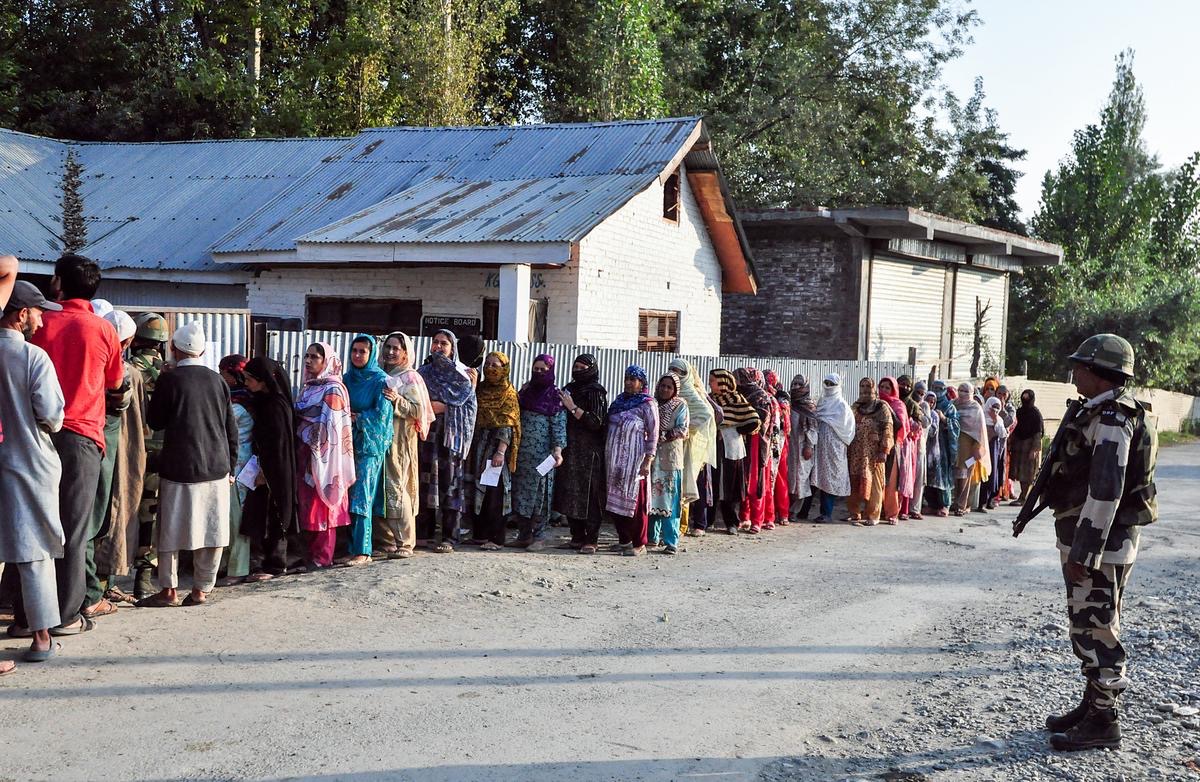Disha Tandon, Pune
A delegation of 15 foreign diplomats has arrived in Srinagar to observe the ongoing polling in Jammu and Kashmir as part of the second phase and also gauge the prevailing law and order situation in the state.
A US Deputy Chief of Mission, Jorgan Andrews, heads the group which includes Mexico, South Korea, and Spain representatives. Analysts say that their visit is a significant turn New Delhi has taken on the level of diplomatic engagement till date, but also marks a greater disposition to show an electoral process in the region.
A three-member delegation arrived at 10 AM, and after that, the first team went to many of the polling stations. It included the Government Boys Secondary School at Ompora and SDA Bemina. The Election Commission of India has made adequate arrangements for voting, and they seem to be pleased with the arrangements being made, said a senior official. The diplomats will address other community leaders and stakeholders in the next two days to understand ground realities.
This is an important visit time, as the second phase comprises crucial constituencies in Srinagar, Ganderbal, and Budgam. According to reports, the voter turnout in the second phase reached around 56%, which has been described as strong, despite the issues that have accompanied elections in the volatile corner of the region. The polls have been peaceful, having occurred without much disturbance, which highlights the efforts of the Government in maintaining order.
The electoral cycle is remarkable in several aspects, primarily because of the upsurge in visits by diplomatic constituencies from abroad. It reflects in fresh visits of diplomats, including a previous US delegation which met various political leaders last month. The shift seems to be part of a larger strategy to project normalcy and democratic engagement in Jammu and Kashmir, particularly after the G20 tourism meet held in Srinagar in May 2023.
Others have, however, raised other objections, including former Chief Minister Omar Abdullah. “This is a pity,” said Abdullah, “for what is being staged is guided tours for diplomats instead of greater access and transparency for foreign journalists for which they have waited for long”.
Besides, these elections are also a make or break for the prospects of some high-profile candidates, like Abdullah himself, from Ganderbal against the state secretary of the PDP, Bashir Ahmad Mir, and independent Sarjan Barkati. The results of these constituencies alone can well change the political scenario in Jammu and Kashmir entirely.
Here, the process of elections has been going on in three phases with the third one scheduled on 1st October and will be held in constituencies of northern Kashmir. Counting of votes for declaring 239 candidates by determining the fate will be on 8th October.
This is a fundamental shift in New Delhi’s approach toward overseas scrutiny of its electoral process, with the presence of foreign diplomats in Jammu and Kashmir. Some remarks about the complicated political realities of this region may shape some opinions on democracy and governance in this historically tumultuous area.
